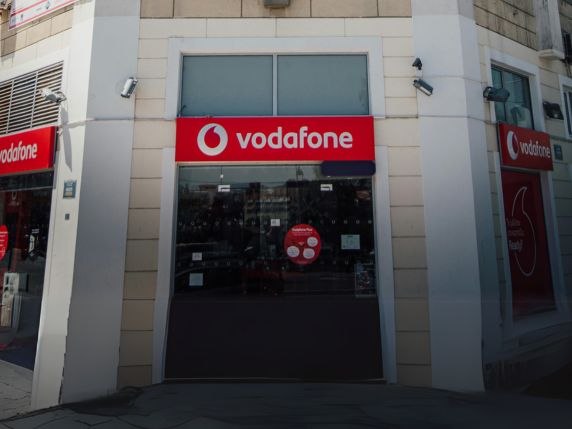On 10 March 2023, the Bank of England (‘BoE’) stated that it ‘intends to apply to the Court to place Silicon Valley Bank UK Limited (‘SVBUK’) into a Bank Insolvency Procedure.’
However, in a stunning turn of events, on 14 March 2023, BoE announced ‘… Bank of England (Bank), in consultation with the Prudential Regulation Authority (PRA), HM Treasury (HMT) and the Financial Conduct Authority (FCA), has taken the decision to sell Silicon Valley Bank UK Limited (‘SVBUK’), the UK subsidiary of the US bank, to HSBC UK Bank Plc (HSBC).’
These events have had widespread repercussions across the US banking sector in particular. The news of rating agency Moody’s downgrade of the US Banking sector as a whole, and Signature Bank to junk while putting six other US banks on watch makes sobering reading. It has been particularly challenging for financial and technology companies and entrepreneurs who banked with SVB or banks that were similarly positioned. Confidence in traditional banking has taken a hit and alternative asset classes and crypto assets are enjoying something of a renaissance.
What does it mean for SVBUK customers?
The transfer of SVBUK was completed on Monday morning (13 March) via a transfer instrument issued by the BoE in accordance with section 7(5F) of the Banking Act, details of which can be found here.
The BoE confirmed in its 14 March statement that ‘all depositors’ money with SVBUK is safe and secure as a result of this transaction.’ It has also confirmed that customers can continue to contact SVBUK through the usual channels and borrowers should make any loan repayments to SVBUK as normal. SVBUK staff remain employed by SVBUK, and SVBUK continues to be a PRA/FCA authorised bank. In other words, it is business as usual and customers should be able to continue to transact with SVBUK as normal.
As such, the sale of the Bank should alleviate an immediate need to take any actions to secure deposits with SVBUK.
Are any other UK Banks affected?
The BoE said that ‘no other UK banks are directly materially affected by these actions, or by the resolution of SVBUK’s US parent bank. The wider UK banking system remains safe, sound, and well capitalised.’ With that, the BoE does not expect the insolvency of SVB and its sale to HSBC to impact any other Banks. Should this position change, the options below would become important.
What could happen in a similar situation?
In the event a different bank found themselves in a similar situation, customers could expect:
- If the BoE chooses not to exercise special resolution powers, it could apply to the courts to place the bank in insolvency, in which case other than the protected limit of £85,000 and £170,000 (joint accounts), other assets and liabilities of the Bank would be managed by the official liquidators in accordance with applicable insolvency procedures.
- The Bank will likely stop transacting, ie no payments will be made and no deposits will be accepted.
If the BoE and PRA are satisfied that the BoE should exercise special resolution regime (‘SRR’) powers, ie and the conditions set out in section 7 of the Banking Act 2009 are met, it may choose to exercise from the stabilisation options as set out below. These are:
- transfer to a private sector purchaser (such as the transfer of SVBUK to HSBC);
- transfer to a bridge bank (ie a company created specifically for this purpose and owned and controlled by the BoE);
- transfer to an asset management vehicle;
- the bail-in option, which is used to absorb the losses of the bank and recapitalise it using its own resources. This enables the Bank to impose losses on shareholders and to write down or convert into equity the value of the claims of certain unsecured creditors, so that the failed firm can be recapitalised and continue to operate; and/or
- transfer to temporary public sector ownership.
The BoE will also write down the capital instruments at the failing Bank as it did in the case of the sale of SVBUK to HSBC. The aim of a mandatory reduction is for a firm to be recapitalised and restored to long-term viability by shareholders and holders of capital instruments issued by the issuing bank (in order to meet its regulatory capital requirements). These would include various classes of capital instruments from the CET1 instruments, which are the highest quality of regulatory capital and include shares, to Additional Tier 1 (AT1) instruments, and Tier 2 instruments. The BoE would make this reduction by a mandatory reduction instrument which would have force of law.
Bank Insolvency Procedure (‘BIP’)
The BIP is the most probable outcome where BoE and PRA decide that the failure of a bank that is unlikely to have adverse systemic consequences and for which there is unlikely to be a buyer. The key outcome is to enable quick compensation payments to depositors protected under the Financial Services Compensation Scheme (‘FSCS’).
Further information
If you are concerned about any of these outcomes, whether in respect of the Bank you have deposits with, if you would like a review of existing banking arrangements and/or you would like to explore other options exploring alternatives for securing your money and assets, our senior financial services solicitors can assist you to help you minimise any risks and exposure.







